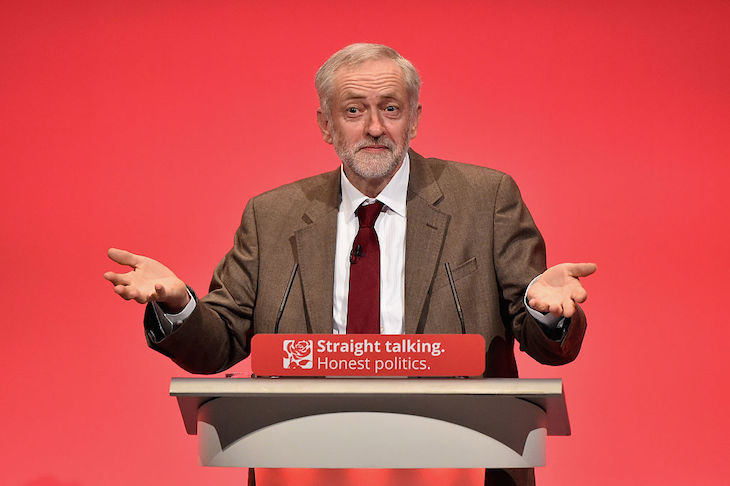This weekend is Labour’s tenth conference in opposition and the fifth with Jeremy Corbyn as leader of the party. It’s also the first time since 2007 that its party conference season has been framed as the appetiser to an imminent general election campaign. The 2007 election famously never was, much to David Cameron’s delight, but this time both government and opposition agree on the need for a vote, if not the timing. Accordingly, Labour needs to up its game.
The party cannot afford to spend the five days of precious airtime conference provides arguing over its Brexit position, again. But it looks like it will. It should not be entering conference fixated on its own navel, with incomprehensible rows over its rulebook and constitution. But it is. The shadow cabinet shouldn’t be spending their time indulging in crackpot conspiracism about whether Labour can trust the civil service or not. Incredibly, some will be. If ever there was time for any of this, there isn’t any more.
The forthcoming general election isn’t just a chance to fend off the Tories or enjoy a respectable defeat – it is a huge chance to win power and change things. Boris Johnson’s path to a majority looks suspiciously similar to Theresa May’s, minus any kind of inroads in Scotland. Like May, I suspect he will run headfirst into a red wall in his target seats in the Labour heartlands.
The jury is still out on the Liberal Democrats’ policy of revoking Article 50. But it is undeniably clear and firmly plants the party at one end of a polarised argument. It has resulted in a spike in the polls.
One of the reasons Labour did so well in the 2017 general election was the contrast between its hope and vision versus the relentless bleakness of the Tory offering. But how to replicate that two years on against a very different prime minister? The difficult truth for the party is that it means sounding less like activists and more like the public. It means tackling the subjects that nag away in the backs of the minds of people across the country, not the interests of a few delegates.
Labour owns the narrative on the NHS. It has the potential and the framework to do more on education, but must move on from talking about structures and processes and appeal more to hearts and minds. But what it really needs is a story that speaks to the fears, worries and hopes of those voters not naturally inclined to the party.
This isn’t the sexy politics of philosophy and ideology. Across the country, provincial life in Britain is increasingly hungover with the persistent, nagging fear of decline: of closing pubs, boarded up premises and betting shops. Of jobs leaving and drugs being bussed in. The ghosts and the echoes of ‘A Town Called Malice’. While the Brexit debate has conditioned us to consider this chiefly as the preserve of the so-called ‘left behinds’, in reality these worries are subjective and cross social divides, impacting people in the suburbs of the south east as well as the seaside towns of the north west. Put bluntly – they affect a lot of voters in a lot of seats. This isn’t the stuff that gets activists excited – but it’s the real life of the voter who simply wants their local area to be a nice place to live. Labour must paint a picture of improving everyday life for the many.
This approach should be complemented with a commitment to renewal. Starting with his election as Labour leader, one of Corbyn’s key strengths has been to paint himself and the Labour party as something fresh and new. But he has now been a frontline politician for five years and already has one general election defeat to his name. The new prime minister wants to be seen as the new brush, sweeping away the paralysis of the last government. In order to stay fresh, Corbyn should, as Gordon Brown planned to in 2007, start talking up and creating space for the next generation of the party’s leadership.
The stakes this conference season are the highest they have been for a long time. The conference hall in Brighton will applaud and holler and sing the Red Flag with gusto. But the trains back to Westminster are like the route to Number 10 – they go through Crawley and Croydon. That is where Labour’s focus must be.
Paul Ovenden is a former Labour spokesman.






Comments